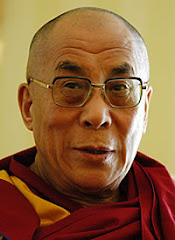Edith Cavell was an English nurse, born in Norfolkshire in 1866 and the daughter of a clergyman. In 1907 she established a training school for nurses in Brussels in which hundreds of Belgian and German nurses were trained. In August 1915, during the German occupation of the city under the civil governorship of Baron von der Lancken, Cavell was suddenly arrested and imprisoned. She was charged with having aided English and Belgian young men who had come under her care as a nurse to escape to Holland and to England. Following trial in a military court on October 7th and 8th , she was condemned to be executed. In view of the fact that Cavell had devoted her life to humane service, and that the death penalty had not previously been inflicted for the offense with which she was charged, the American minister to Belgium, Brand Whitlock, endeavoured by all means in his power to prevent her execution. When Whitlock's secretary, Hugh Gibson, on the evening of her execution, sought the offices of the civil governor, Baron von der Lancken and his staff were found attending a disreputable theatre. After first denying, though later admitting, both the sentence and the order of execution, Von der Lancken refused to delay her execution or even to grant permission to telephone the Kaiser on her behalf. When reminded that her murder would rank with the burning of Louvain and the sinking of the Lusitania in stirring the civilized world with horror, Count Harrach, the civil governor's aide, remarked that his only regret was that they did not have "three or four more old English women to shoot." Despite all efforts of the American minister, Cavell was executed at 2 am on October 13th 1915.
After the war in May 1919, Cavell's body was exhumed and returned to England. With great ceremony, she was taken to Westminster Abbey for a memorial service attended by King George V and then was reburied in Norwich. Today a statue stands in her honour at St. Martin's Place near Trafalgar Square. The statue is engraved with a statement made by Cavell to her last English visitor before her execution. It reads: "Patriotism is not enough. I must have no hatred or bitterness for anyone." A special service is held there every year at the anniversary of her death.
Thursday, 17 June 2010
Subscribe to:
Post Comments (Atom)











2 comments:
Disgraceful! RIP Edith
She was probably too independent for them. Very sad.
Post a Comment